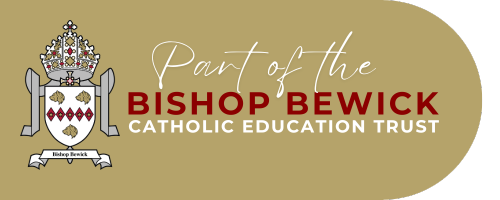
ENGLISH
INTENT:
At St. Mark’s, we believe that reading is the key to learning across the curriculum and are dedicated to encouraging all children to be passionate about reading and writing. We are determined that ALL children will become highly competent readers and writers by the end of their time with us. It is our intention to immerse pupils in the wonders of quality texts to instil a love for reading, a passion for discovery and a confidence to explore their imagination.
During their time at St. Mark’s, all children will be exposed to a high-quality education in English. This will not only teach pupils to speak and write fluently so that they can communicate their ideas and emotions to others but will also, through their reading and listening, ensure that others can communicate with them.
The English curriculum is built on the principle that high-quality models and teaching of speaking and listening skills lays the groundwork for everything else we want the children to learn. Reading and writing skills are the product of procedural fluency of knowledge in phonics and letter formation. This knowledge is a necessary precursor to the development of skills across the school.
IMPLEMENTATION:
The English Curriculum consists of:
Speech and Language:
Pupils regularly given opportunity to listen and respond to adults and their peers.
Foundation years and Key Stage 1 staff praise good interactions and speech while modelling correct sentence formation.
Expert readers in school will model good ‘prosody’ when reading and allow children the opportunity to read aloud regularly.
Reading:
Children learn phonics from Nursery, at an age and ‘stage’ appropriate level via the Read Write Inc. systematic phonics scheme. Their reading fluency and accuracy is supported with reading books that are closely linked to their phonic abilities. Children in Key Stage 2 follow our reading scheme where they continue to build on their reading fluency, accuracy and wider vocabulary.
The Read Write Inc. phonics scheme used in school teaches reading, comprehension and writing knowledge and skills throughout Early Years and Key Stage 1 until the children are reading with fluency, accuracy and understanding. In Year 2, we aim for children to reach this standard as soon as possible so that we can move on to whole class reading sessions which prepare the children to build their vocabulary and skills in readiness for KS2.
Whole class reading lessons take place twice a week from Year 3 to Year 6. These sessions follow a progression of skills in the following areas: Vocabulary, Inference, Prediction, Explain, Retrieve and Summarise (VIPERS).
Reading for pleasure is modelled and encouraged, with teachers reading to children frequently and from a wide range of genre and authors. The school library is stocked and replenished with high quality texts and the school buys into Seven Stories’ ‘Hooks into
Books’ scheme to ensure that diverse and exciting stories are always available to children.
Teachers ensure that reading areas in classrooms offer children space to choose, read and share books that interest them.
Writing:
Carefully designed text-led learning journeys, with a clear starting point and end outcome.
Tasks which are designed to challenge all learners with adaptations and support in place for those learning in smaller steps.
Grammar to be taught through systematic steps moving from discrete practice and moving into contextual teaching.
Teachers use progression of skills ladder for text to correctly identify the skills/grammatical content required. This will be taught using a series of lessons where teacher modelled examples or high-quality exemplars are used.
Opportunities to apply taught skills in other areas of the curriculum
Spelling:
Daily Phonics sessions in Reception and Key Stage 1, following RWI
‘Get Spelling’ sessions at least four times a week these lessons will vary between teaching, revisiting and application.
In Key Stage 2 spelling tests are used to give children spaced repetition practice and to give teachers accurate assessment data. Teacher discretion implemented to ensure a review and revise process is followed.
Handwriting
Handwriting is to be taught and practised daily using Nelson Handwriting.
Children are encouraged to maintain high standards of presentation in all lessons.
Presentation and handwriting is celebrated and good models/exemplars are displayed in classes and corridor displays.
IMPACT:
We strive to ensure that our children's progress is in line with or exceeds their potential when we consider the varied starting points of all our children. We measure this using the assessment criteria outlined on i-Track, NFER testing for reading and GAPS for writing, while always considering the age-related expectations for each year group. In writing we will monitor progression of skills through target setting and end of termly expectations which will form the basis of our moderation discussions. Our intentions are that our English curriculum will ensure our pupils are academically prepared for life beyond primary school and throughout their educational journey.


